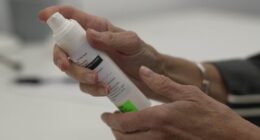Share this @internewscast.com
The potential for harm extends not only to pedestrians and other drivers but also to law enforcement officers.
This article is sponsored by Omar Saman Law Firm, a criminal defense firm based in Houston. It’s important to note that Omar Saman Law Firm does not represent any individuals named or referenced in the events discussed. These references are included solely for educational purposes regarding the risks and legal consequences of DWI in Texas.
A recent incident in Downtown Houston highlights the severe and immediate legal ramifications of driving while intoxicated (DWI). At approximately 9:15 p.m. on W Dallas Street near the Gulf Freeway, a driver, suspected of being impaired, crashed their vehicle, causing a woman to become trapped beneath it. Emergency responders worked swiftly to extricate the critically injured victim, who was then transported to Ben Taub Hospital. This incident initiated a series of legal repercussions for the driver, who was arrested at the scene and is now facing serious felony charges.
This particular crash is part of a distressing pattern that underscores the dangers of impaired driving on Houston’s roads. The driver involved could be charged with intoxication assault, a serious offense in Texas, with the possibility of more severe charges if the victim’s condition worsens. This serves as a stark reminder of the significant legal risks drivers incur when driving under the influence, affecting lives and leading to complex legal challenges. It’s crucial to understand the seriousness of DWI laws and the subsequent legal proceedings when navigating the roadways.
The High Stakes of Impaired Driving in Houston
Houston roads have witnessed numerous incidents underscoring the severe risks associated with DWI. Beyond the recent downtown collision, other cases paint a concerning picture. For instance, authorities recently arrested a man for DWI after he allegedly drove the wrong way on the Sam Houston Parkway, eventually crashing on the shoulder while still facing oncoming traffic; his blood alcohol content (BAC) was reportedly over twice the legal limit. In another case, a woman was arrested for DWI after being found asleep in a fast-food drive-thru with her child in the car, adding potential child endangerment elements to the charges.
The potential for harm extends not only to pedestrians and other drivers but also to law enforcement officers. A Bellaire police officer, William Walker, experienced this firsthand when a suspected intoxicated driver struck his patrol car as he was assisting a stranded motorist on the West Loop South. Fortunately, Officer Walker sustained only minor injuries.
Records revealed the driver accused in that incident was already on probation for a 2022 DWI and possessed a history of five prior DWI-related charges, highlighting the challenge of repeat offenders. These events collectively demonstrate that impaired driving carries immense risks, leading to property damage, severe injuries, fatalities, and significant legal consequences for those involved, regardless of their prior record.
Understanding Intoxication Assault Charges
When a DWI accident inflicts serious bodily injury to another person, the legal stakes escalate dramatically, often leading to charges of intoxication assault. Under Texas Penal Code § 49.07, intoxication assault occurs if someone, by accident or mistake, causes serious injury to a third party while operating a motor vehicle in public while intoxicated.
“Serious bodily injury” causes serious permanent disfigurement, creates a significant risk of death, or protracted loss or impairment of function of any organ or body part. This charge is usually classified as a third-degree felony in Texas.
A conviction for a third-degree felony like intoxication assault carries substantial penalties, including potential imprisonment for two to ten years and fines up to $10,000. The severity of the consequences underscores the state’s firm stance against impaired driving that results in harm.
Suppose the victim tragically succumbs to their injuries. In that case, the charges can be elevated to intoxication manslaughter, a second-degree felony with even harsher penalties, potentially 2 to 20 years in prison. This was the charge faced by Michael Anthony Arguijo, accused of killing Brittany Munive and her son DJ in a wrong-way crash on I-45 while allegedly having a BAC of 0.17, more than twice the legal limit.
According to the NHTSA, 34 people die each day in the U.S. in drunk-driving crashes in 2023, equating to one death every 42 minutes. Click here for a file on the data.
Navigating the Legal Process After an Arrest
The moments following a DWI arrest initiate a complex legal journey. Typically, the process begins with the arrest, followed by transport to a police station or detention center for booking. Personal information is recorded during booking, fingerprints, and photographs are taken, and the individual may be placed in a holding cell.
Depending on the circumstances and jurisdiction, the vehicle driven may be impounded, incurring towing and storage fees. One of the most immediate administrative consequences is the potential suspension of the driver’s license through the Administrative License Revocation (ALR) program, a civil process separate from criminal charges. Drivers generally have only 15 days from the arrest to request an ALR hearing to contest the suspension.
During interactions with law enforcement, arrested individuals have crucial rights, including the right to remain silent and the right to an attorney. Field Sobriety Tests (SFSTs) are often administered roadside to assess impairment; performance on these tests can be used as evidence.
Chemical tests, such as blood or breathalyzer tests, measure BAC. Results above the legal limit (0.08% in Texas) provide strong evidence for the prosecution. Refusing to submit to chemical testing can lead to automatic license suspension.
Recent Houston-area arrests highlight the prevalence of high BAC levels, with cases like Cameron Franklin and Steffany Alvarez allegedly involving BACs nearly or exactly twice the legal limit. Following booking, an arraignment hearing is scheduled where formal charges are read and bail is set. Bail amounts can vary significantly, as seen in recent Harris County cases where repeat DWI offenders received bonds as low as $100 or $300.
The Critical Role of Legal Defense in DWI Cases
Facing DWI allegations, particularly serious felony charges like intoxication assault or manslaughter, presents immense legal challenges with potentially life-altering consequences. The complexities involved in these cases, from scrutinizing the circumstances of the arrest to challenging the validity of sobriety and chemical tests, require specialized knowledge and experience. Prosecutors vigorously pursue convictions, especially when injuries or fatalities occur, making a robust defense paramount. Navigating the legal system effectively demands a thorough understanding of Texas DWI laws, evidence rules, and courtroom procedures.
Securing experienced legal representation early is crucial for anyone accused of DWI. Omar Saman Law Firm emphasizes thorough case review, from questioning the legality of law enforcement actions, from the traffic stop to field sobriety or chemical test results. Defense strategies might include disputing BAC test accuracy or demonstrating that intoxication was not the proximate cause of injury.
A skilled criminal defense lawyer can analyze every facet of the case, identifying potential weaknesses in the prosecution’s evidence and procedural errors by law enforcement. Experienced firms draw on extensive experience, offering clients dedicated advocacy tailored to the specific challenges they face.
Their approach involves helping clients understand the charges and examining all available legal options to pursue a favorable outcome, whether dealing with a first-time DWI or more severe charges like intoxication assault or vehicular manslaughter. Experienced counsel works to protect the defendant’s rights throughout the process.
Effective defense strategies in DWI cases can involve multiple approaches. An attorney might challenge the legality of the initial traffic stop, question the administration or accuracy of field sobriety tests, or dispute the results of breath or blood tests based on machine calibration or sample handling issues.
In intoxication assault cases, the defense may focus on demonstrating that the defendant’s alleged intoxication was not the direct cause of the serious bodily injury. The ultimate goal is often to mitigate the severe penalties associated with a conviction, potentially seeking reduced charges, alternative sentencing, or acquittal.
Additionally, addressing the long-term impact is a vital service attorneys provide to help clients move forward after resolving their cases. This includes seeking expunction or nondisclosure of records where possible, which protects future employment and housing opportunities.
Broader Implications and Community Impact
The consequences of DWI extend far beyond the individuals directly involved in a crash, creating ripples of loss and trauma throughout the community. Tragedies like the deaths of Brittany Munive and her young son, DJ, leave families devastated and communities mourning. The crash that seriously injured their surviving family members underscores the profound human cost exacted by impaired driving decisions.
Similarly, incidents like the Bay City crash, where a passenger was ejected and airlifted, highlight the potential for life-altering injuries resulting from a driver’s choice to get behind the wheel while intoxicated. These events serve as painful reminders that impaired driving is not a victimless crime.
In response to the ongoing problem, law enforcement agencies and city officials implement various strategies to combat DWI. For example, Houston Mayor John Whitmire announced initiatives to increase police presence along corridors like Washington Avenue, aiming to address issues including drunk driving and related dangerous activities like street takeovers.
Despite these efforts, incidents persist, as evidenced by the continued arrests for DWI, including repeat offenders and drivers with significantly elevated BAC levels. The statistic mentioned earlier reinforces the urgent need for continued vigilance, stricter enforcement where necessary, and public education campaigns promoting responsible choices and using alternatives like ride-sharing services or designated drivers.
The Lasting Toll of Drunk Driving
The recent DWI-related crash in Downtown Houston serves as a potent illustration of the severe legal and personal ramifications of impaired driving. Facing charges like intoxication assault carries the potential for lengthy prison sentences, substantial fines, and a permanent criminal record, drastically altering one’s future.
The legal process following a DWI arrest is intricate and demanding, making experienced legal counsel indispensable for protecting one’s rights and navigating the complexities of the justice system. Ultimately, these recurring incidents underscore a collective responsibility to prioritize safety, make responsible decisions, and prevent the tragic consequences of driving while intoxicated on Houston’s roads and beyond.
Members of the editorial and news staff of Law&Crime were not involved in the creation of this content.

















